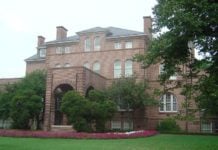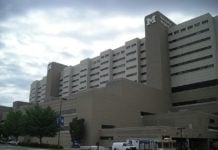As anyone who has taken a pre-med class knows, medical schools tend to be the most exclusive and difficult types of colleges, and with good reason. Doctors make significant decisions on a daily basis, and the research they perform improves the lives of people all over the world. Schools only want the best of the best entering their programs.
One of the oldest states in the union and the home of many of the nation’s first universities, Virginia offers some of the country’s best medical schools. Students from around the world come to the Old Dominion state to enjoy its history and temperate climate, as well as its highly esteemed medical schools. From religious universities to exclusive private schools to tier-one research schools, there’s a medical school in Virginia for every future doctor.
But which schools are the best? Looking at student accomplishments, faculty contributions, and partner organizations, as well as the U.S. News & World Report’s ranking of medical schools, College Gazette has compiled this list of the best medical schools in Virginia.
6. Liberty University College of Osteopathic Medicine (Lynchburg, VA)
Since its founding in 2014, LUCOM has established itself as the premier school for studying medicine in a Christian environment. Housed on the Liberty University campus in Lynchburg, LUCOM emphasizes humanitarian care and a Christian worldview, with an enrollment of 610 students in 2020.
With a very competitive 4.2% acceptance rate, the school requires a 3.0 GPA and a 501 MCAT score. But those accepted receive first-class training, including opportunities for third and fourth-year students to perform daily rotations in partner clinics. LUCOM also served as a founding partner in Lynchburg’s Liberty Mountain Medical Group LLC primary care clinic.
In addition to its resources, LUCOM also prides itself as a faculty devoted to clinical research. In recent years, LUCOM faculty have contributed to papers published in The American Journal of Physiology, The American Journal of Gastroenterology, and The Journal of the American Osteopathic Association. The faculty remains active in their professional organizations, with current interim Dean Joseph R. Johnson serving as a fellow in American Osteopathic Board of Obstetrics and Gynecology and a Distinguished Fellow in the American College of Obstetricians and Gynecologists, while Assistant Dean Carl R. Hoegerl served as an Osteopathic Health Policy fellow.
With a consistent history of placing student-doctors into residency programs, LUCOM is an excellent choice for those looking to study in a Christian environment.
5. Edward Via College of Osteopathic Medicine (Blacksburg, VA)
For future doctors from rural areas in Virginia, Alabama, North Carolina, and South Carolina, VCOM-Virginia may be an ideal school. A system of five schools, including a flagship campus housed at Virginia Tech, VCOM actively recruits from these areas as part of its larger goal to increase the number of physicians in Appalachia. The school also partners with free clinics in those states, providing preventative medicine and primary care while giving students real-world training. VCOM-Virginia’s commitment to serving underrepresented populations has earned the school the 2020 Higher Education Excellence in Diversity Insight into Diversity award.
VCOM-Virginia accepts only 8% of applicants and considers an MCAT score of 500 to be competitive. But they also take into consideration “GPA and other personal qualities.” Placed in the 94-122 range in the U.S News & World Report national rankings, VCOM-Virginia specializes in bioinformatics and primary care, goals advanced by their newly-launched Center for Bioinformatics and Genetics and the Primary Care Research Network.
With a full-time faculty of 138 teachers, VCOM-Virginia spotlights its 0.1:1 ratio of students to teachers. However, the faculty also remains committed to research and has contributed to articles published in journals such as Journal of Food Nutrition and Metabolism, Applied Neuropsychology: Child, and the Journal of the American Pharmaceutical Association.
4. Eastern Virginia Medical School (Norfolk, VA)
Although it ties with VCOM in the national rankings of best medical schools for research, EVMS is ranked #49th in primary care. EVMS is a trailblazer in reproductive medicine, having been the first American institution to produce a viable fetus through in-vitro fertilization.
Students at EVMS have access to several specialty centers, including the Sentara Center for Simulation and Immersive Learning, the Jones Institute for Reproductive Center, and the M. Foscue Brock Institute for Community and Global Health.
As important as its research may be, EVMS also values community engagement. Since 1987, EVMS students have collected and distributed coats for underprivileged children in Norfolk as part of their “Coats for Kids” initiative. Buildings on campus become spooky every Halloween when EVMS students launch their “Haunted Hallway” event for local children.
With such impressive credentials, EVMS has high admission standards. Only 13% of applicants receive admission offers, and students have an average GPA of 3.54 and an MCAT average of 511.7. However, those who graduate join a prestigious group of alumni, including astronaut Yvonne Cagle and pediatric researcher Dr. Maria C. Gillam-Krakauer.
3. Virginia Tech Carilion School of Medicine (Roanoke, VA)
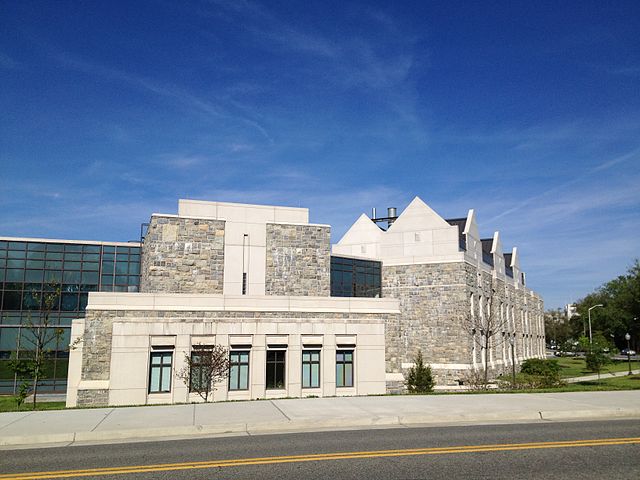
After operating as a private institution for 10 years, the medical school formed by the Carilion Clinic became an official part of Virginia Polytechnic Institute and State University in 2018. US News & World Report currently ranks VTCSM 81st in the nation in research.
The school boasts its community-focused education, working to “translate research from the bench to the bedside.” Because they prioritize small class sizes, VTCSM only accepts 8.1% of applicants. The class of 2024 had a mean GPA of 3.6 and a mean MCAT of 513.
Although it values connection with the community, the school does not separate service from research. Each 2nd– through 4th-year student receives a $1000/year stipend for research supplies. With these tools, students perform a total of 14 weeks of R&D through these years. This emphasis on research pays off in remarkable breakthroughs from its students, including recent discoveries related to cellulitis and brain development.
These achievements come as part of the 27 faculty-led research teams into which VTCSM’s students enter after their first year.
2. Virginia Commonwealth University School of Medicine (Richmond, VA)
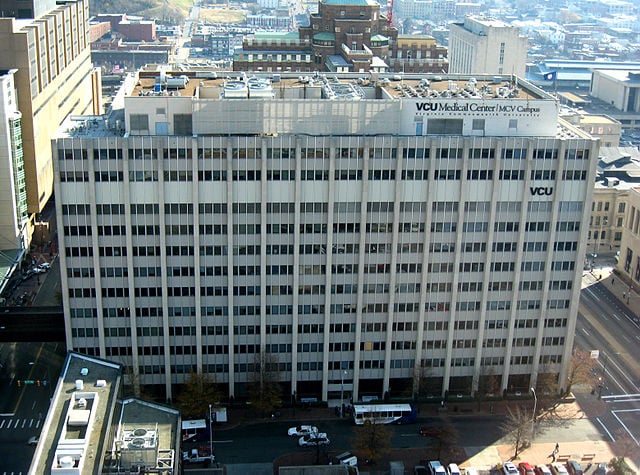
The VCU School of Medicine is the oldest and largest Medical School in Virginia. Throughout its long history, VCUSM has produced many respected alumni, including Nobel laureate Baruj Benacerraf, virologist Jeffery Taubenberger, and “Patch” Adams, the idiosyncratic physician portrayed on film by Robin Williams.
Despite that illustrious track record, VCUSM shows no signs of slowing down. The school’s commitment to research and teaching has earned it a U.S. News & World Report ranking of #68 among best medical schools for research and #49 in primary care.
Unsurprisingly, the VCU School of Medicine demands excellence from its applicants. The average MCAT among applicants is 512 and the average GPA is 3.7, for an acceptance rate of only 4.5%.
But those accepted into the VCU School of Medicine have the opportunity to work with an active faculty, such as Gonzalo Bearman, the inaugural editor-in-chief of the Society for Healthcare Epidemiology of America’s journal Antimicrobial Stewardship & Healthcare Epidemiology, or Dr. Georgia McIntosh, winner of the 2020 Leonard Tow Humanism in Medicine Award.
Third- and fourth-year students at VCUSM have several training options, including the school’s 367,000-square-foot Critical Care Hospital, the McGuire VA Medical Center, and the Inova Fairfax Hospital in Northern Virginia. They may also participate in the research and biomedical incubator at the Virginia BioTechnology Research Park in Richmond.
And if those bona fides aren’t enough to entice students, future doctors may like to know that VCU has been recognized by the League of American Bicyclists as “the most bike-friendly university in Virginia!”
1. University of Virginia School of Medicine (Charlottesville, VA)
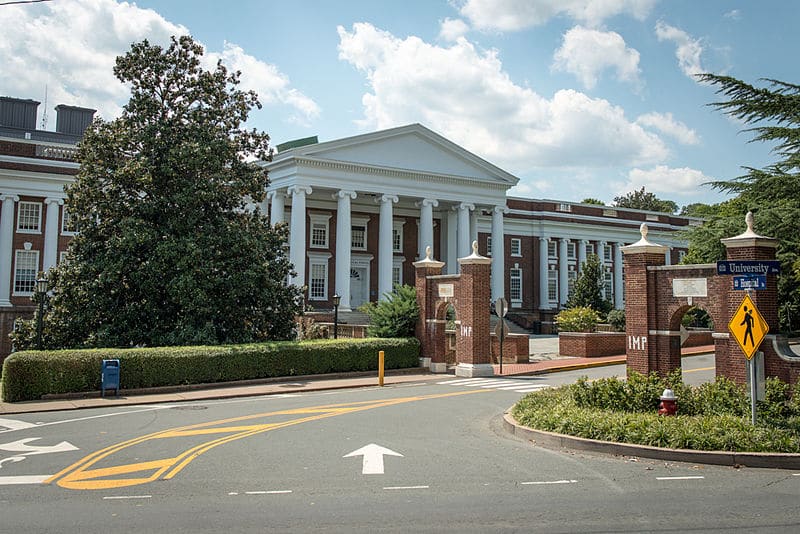
Ranked 29th in the U.S. for research and 6th in the nation for primary care, UVA SoM is one of the oldest and most respected medical schools in the country. Since its founding in 1819 by Thomas Jefferson, the school has seen its share of respected faculty, including Nobel Prize laureates Barry Marshall, Alfred G. Gilman, Ferid Murad, as well as numerous respected scholars.
Today, UVA SoM aligns with the University of Virginia Health System, with its 500-bed UVA Hospital, considered by many to be the best in the state. Unlike schools that reserve clinical work to years three and four, UVA SoM features a “Next Generation” curriculum that condenses first- and second-year education into 1.5 years. This approach allows student doctors to begin their rotations and get hands-on experience as soon as possible.
UVA SoM’s 10.7% acceptance rate seems high, but don’t be fooled. They received over 4800 applications each year for only 156 spots. Those accepted have a mean GPA of 3.84 and a mean MCAT of 517.58. Once accepted, students have access to many resources, including the highly-rated UVA Cancer Center, the Carter Immunology Center, and the Center for Brain Immunology & Gila. More importantly for some, UVA SoM also features the Department of Perceptual Studies, one of the few academic institutions to research “supernatural phenomena.”








